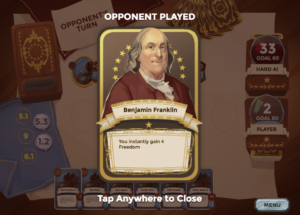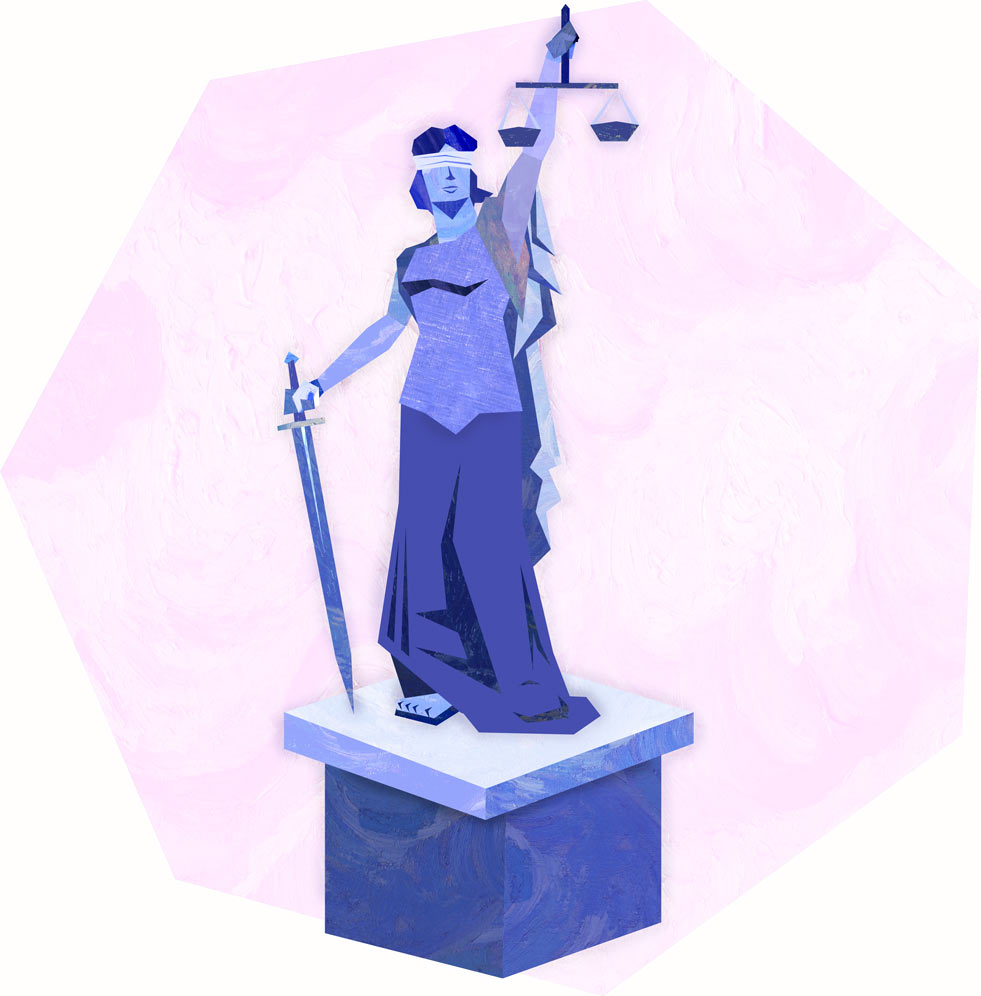Justice at Stake is a national, nonpartisan organization that aims to “keep our courts fair and impartial.” Launched in February 2002, the group is composed of more than 45 judicial, legal and citizen organizations with the common goal of educating the public on the importance of limiting the influence of outside interest groups on the U.S. judicial system.
Federal Judicial Center
The Federal Judicial Center is the “educational and research agency for the federal courts.” Its website contains research on federal court operations, procedures and court history as well as educational resources for judges and court employees.
Federal Bureau of Investigation
The FBI gathers and publishes U.S. crime statistics through its Uniform Crime Reporting Program, which was created in 1929 by the International Association of Chiefs of Police. Among the UCR’s annual publications are “Crime in the United States,” “Hate Crime Statistics” and “Law Enforcement Officers Killed and Assaulted.”
Committee for Justice
The Committee for Justice says its mission is “to defend and promote constitutionalist judicial nominees to the federal courts and educate the public on the importance of judges in American life.” Its founder is C. Boyden Gray, former White House counsel to President George H.W. Bush.
Administrative Office of the U.S. Courts
The Administrative Office of the U.S. Courts maintains www.uscourts.gov and describes itself as the “administrative arm of the federal Judiciary.” Established by Congress in 1939, the agency is directed and supervised by the Judicial Conference of the U.S. – the policy-making body of the federal judiciary, which is in turn made up of the chief justice of the Supreme Court, the chief justice of each circuit court, a representative from each district court, and the chief judge of the Court of International Trade.
Innocence Project
The Innocence Project was founded in 1992 and is dedicated to “exonerating wrongfully convicted people through DNA testing and reforming the criminal justice system to prevent future injustice.” It is a nonprofit legal clinic directly affiliated with the Benjamin N. Cardozo School of Law at Yeshiva University and was founded by attorneys Peter J. Neufeld and Barry C. Scheck.
Death Penalty Information Center
The Death Penalty Information Center is a nonprofit organization that publishes reports and conducts press briefings on issues concerning capital punishment. The center says that it does not have a position on the death penalty “in the abstract.” However, the center notes that “we have been critical … of various aspects of the death penalty in the United States.” The website highlights problems with the way capital punishment is used.
Rights of Juvenile Defendants
This timeline tracks the milestones of the rights of juvenile defendants through U.S. history.
Seventh Amendment
The Seventh Amendment extends the right to a jury trial to federal civil cases such as car accidents, disputes between corporations for breach of contract, or most discrimination or employment disputes.
Sixth Amendment – Right to Trial by Impartial Jury
The Sixth Amendment provides many protections and rights to a person accused of a crime. One right is to have his or her case heard by an impartial jury—independent people from the surrounding community who are willing to decide the case based only on the evidence.
Sixth Amendment – Right to Be Informed of Criminal Charges
The Sixth Amendment right to “be informed of the nature and cause of the accusation” is another protection meant to ensure that the accused receives a fair trail. A speedy, public trial that is heard by an impartial jury is meaningless if a defendant is left in the dark about exactly the crime with which he or she is charged.
Sixth Amendment – Right to Assistance of Counsel
The Sixth Amendment guarantees a criminal defendant the right to have an attorney defend him or her at trial. That right is not dependent on the defendant’s ability to pay an attorney; if a defendant cannot afford a lawyer, the government is required to provide one. The right to counsel is more than just the right to have an attorney physically present at criminal proceedings. The assistance provided by the attorney must be effective.
Sixth Amendment – Right to Speedy Trial
Without this right, criminal defendants could be held indefinitely under a cloud of unproven criminal accusations. The right to a speedy trial also is crucial to ensuring that a criminal defendant receives a fair trial. If too much time elapses between the alleged crime and the trial, witnesses may die or leave the area, their memories may fade, and physical evidence may be lost.
Fifth Amendment – Right Against Self-Incrimination
This provision of the Fifth Amendment protects a person from being forced to reveal to the police, prosecutor, judge, or jury any information that might subject him or her to criminal prosecution.
Fifth Amendment – Protection Against Double Jeopardy
This portion of the Fifth Amendment protects individuals from being punished more than once for the same criminal act.
Legal Rights
This timeline provides milestones as legal rights of the accused have evolved through U.S. Supreme Court rulings.
Annenberg Classroom’s That’s Your Right
A challenging, fun card game that helps students learn about their rights under the Bill of Rights, the first 10 amendments to the Constitution.

Sixth Amendment Interactive
This tool allows students to explore the rights the Sixth Amendment grants to defendants in criminal trials by linking the text’s most debated clauses to expert knowledge on their various interpretations.
NARAL Pro-Choice America
NARAL Pro-Choice America describes itself as “the leading national advocate for personal privacy and a woman’s right to choose.”
Guttmacher Institute
The Guttmacher Institute was founded in 1968 as the Center for Family Planning Program Development and was named after Alan Guttmacher, a former president of Planned Parenthood and distinguished obstetrician-gynecologist.
Project Vote Smart
Project Vote Smart is a nonprofit, nonpartisan organization that gathers and organizes information on candidates for political office. Vote Smart seeks to discover where candidates stand on any number of issues by scouring public voting records, public statements and biographical information, by monitoring ratings of candidates given by more than 100 competing special-interest groups, and by sending its own detailed questionnaires to candidates through its National Political Awareness Test.
Social Science Research Council
The Social Science Research Council is a New York-based “independent not-for-profit research association” that brings the work of academic social scientists to contemporary social problems.
Leadership Conference on Civil Rights
The Leadership Conference on Civil Rights says it is “the nation’s premier civil rights coalition,” and it has “coordinated the national legislative campaign on behalf of every major civil rights law since 1957.” It was founded in 1950 by A. Philip Randolph of the Brotherhood of Sleeping Car Porters, Roy Wilkins of the NAACP and Arnold Aronson of the National Jewish Community Relations Advisory Council. Today, the LCCR has more than 180 member organizations, including People for the American Way, AARP, the American Civil Liberties Union, the AFL-CIO and constituent unions, the NAACP, National Council of La Raza, the Human Rights Campaign and the National Organization for Women.
American Immigration Lawyers Association
The American Immigration Lawyers Association is a professional organization of more than 10,000 immigration attorneys and legal professors. Its members represent a variety of immigrants, including asylum seekers, entertainment personalities, families that wish to bring relatives to the United States and companies wanting to sponsor foreign workers’ entry to the United States.
American Enterprise Institute
The AEI describes itself as dedicated to “limited government, private enterprise, individual liberty and responsibility, vigilant and effective defense and foreign policies, political accountability and open debate.”
